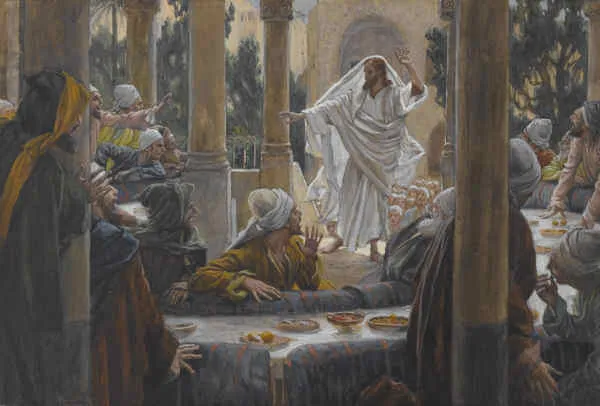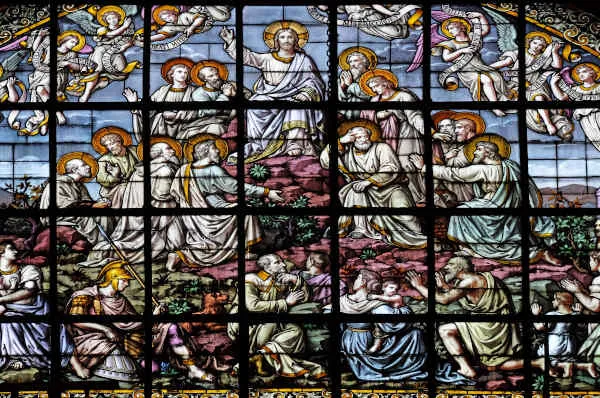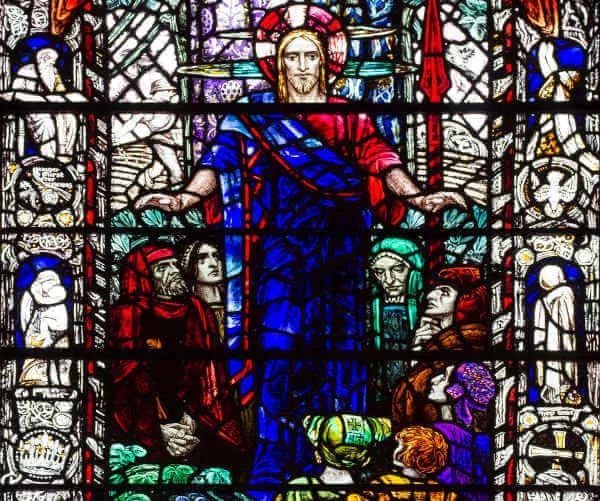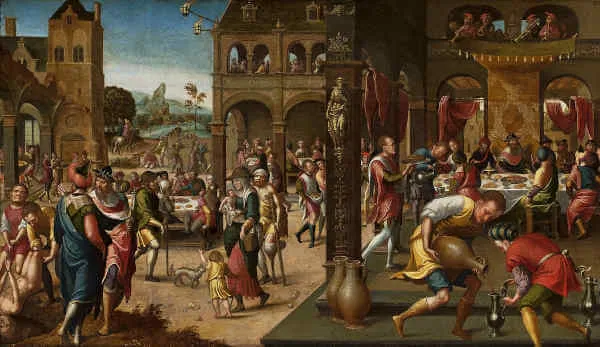Mark 6:17-19
Fidelity in Suffering
Herod was the one who had John the Baptist arrested and bound in prison on account of Herodias, the wife of his brother Philip, whom he had married. John had said to Herod, “It is not lawful for you to have your brother’s wife.” Herodias harbored a grudge against him and wanted to kill him but was unable to do so.
Reflection:
The suffering and death of Saint John the Baptist greatly parallels the suffering and death of Jesus. They were cousins. John was one of the first to acknowledge the divine presence of our Lord when he leaped for joy in the womb of his mother during the Visitation of Mary to Elizabeth. John lived a holy and simple life, embracing His mission to prepare the way for the Lord. He was the last and greatest of the Old Testament prophets. Of him, Jesus said that there was no one born of woman who was greater than John. For these reasons, we should not be the least bit surprised that John’s suffering and death parallelled and prefigured the death of the Savior of the World.
Herod was fearful of John, believing him to be a holy man of God. He imprisoned him with a certain regret, knowing that he was innocent. Similarly, before Pilate condemned Jesus to death, he found Him not guilty of any crime. Pilate knew Jesus was innocent but allowed fear to direct his choice to condemn our Lord.
John was ultimately killed because of the hatred and plotting of Herodias, the unlawful wife of Herod. It was Herodias’ anger that became a weapon, forcing Herod to put John to death. Similarly, it was the jealousy and anger of the religious leaders at that time that instigated and drove the death of Jesus. Pilate, like Herod, was at first unwilling to condemn our Lord. But the relentless hatred of the scribes and Pharisees compelled Pilate to condemn Jesus, just as it was Herodias’ hatred that compelled Herod to kill John.
After John’s death, some of his disciples came to carry his body away for burial. This was permitted by Herod, perhaps because of his feelings of guilt. So also with our Lord, Pilate permitted some disciples and the holy women to carry Jesus’ dead body to the tomb for burial.
In the end, the good fruit of Jesus’ death infinitely overshadowed the crime that was committed against Him. So also with John. We can be certain that, as a martyr, the blood he shed as a witness to Christ bore spiritual fruit that surpassed all he had done in his public ministry.
Each of us is called to imitate our Lord and, therefore, should also take inspiration from Saint John the Baptist. They both were innocent but suffered greatly. They both spoke the truth, despite the hatred of some. They both gave their lives, in accord with the Father’s plan. Jesus was John’s Savior; John was but a precursor and servant of our Lord.
Reflect, today, upon the invitation God has given to you to imitate the life of John the Baptist by uniting yourself to his Lord. The first form of imitation will take place when you commit yourself to the proclamation of the truth in accord with your mission. What mission has God given to you? How is He calling you to proclaim the Gospel with courage, strength, determination and fidelity to the end? Reflect, also, upon the injustice inflicted first upon John and then upon our Lord. As you do, try to look at any injustice you have received in life in the light of John’s and Jesus’ lives. They did not run away from injustice. They embraced it as a sacrifice and offered it to the Father in Heaven. Jesus’ Sacrifice brought forth the Salvation of the World; John’s was but a sharing in that glorious offering. Make your offering with them, and do not hesitate to do so with deep love and trust in the Father’s plan.
Source: https://catholic-daily-reflections.com/2024/08/28/fidelity-in-suffering-4/













